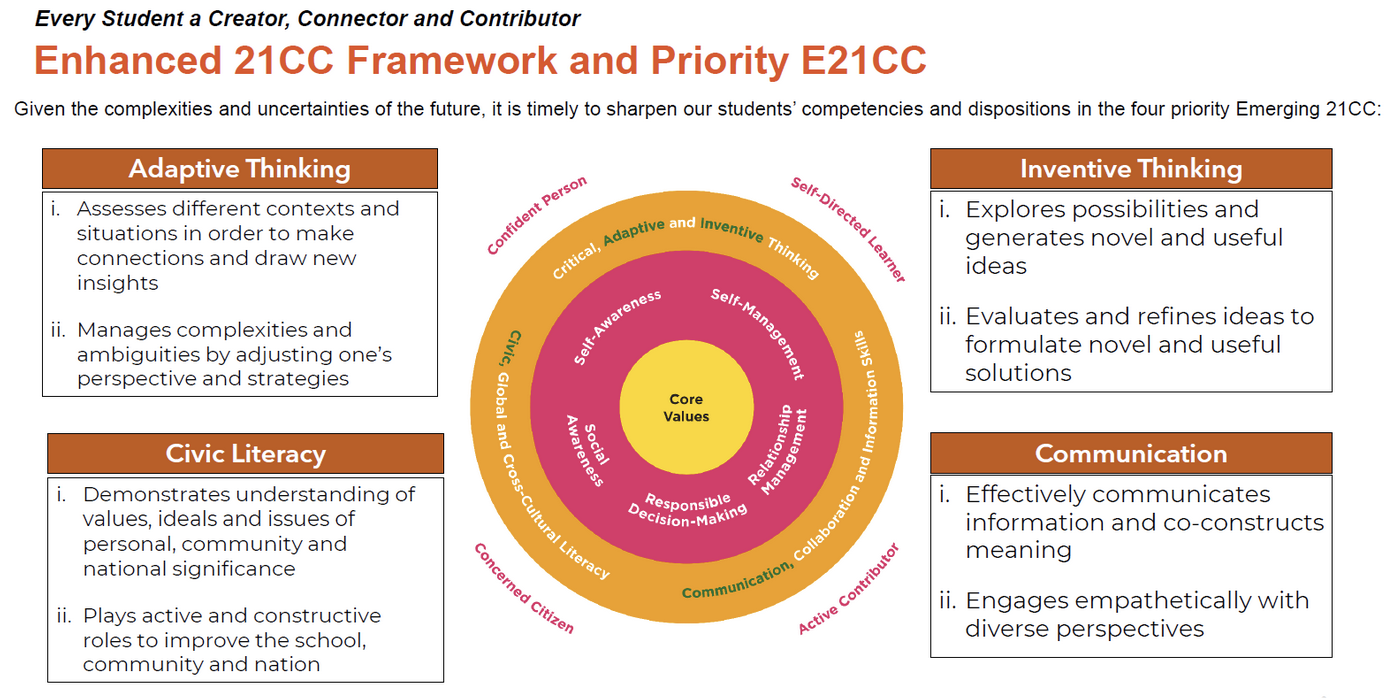CCP Overview
The Total Curriculum in PLMGS (Sec) comprises the Curriculum and the Co-Curriculum. Through the Total Curriculum, we seek to nurture our students holistically into ‘whole persons’ which as stated in our Mission. By this, we mean our students develop holistically in the moral, cognitive, social-emotional, physical and aesthetic domains.
The Co-Curriculum complements the Curriculum. It consists of and provides students with experiential learning opportunities through programmes in:
(a) Co-Curricular Activities (CCA)
(b) Values in Action (VIA)
(c) Student Leadership Development (SLD)
(d) Enrichment and Life-skills (ENL)
Our Beliefs
The co-curriculum is integral to the holistic development of students.
Through the co-curriculum, students are provided with varied and authentic opportunities to develop their values and character into a whole person in line with our mission. Learning that spans across the co-curricular programmes include our school HEART values, social-emotional competencies and the emerging 21st century competencies.

With experiential learning as its main delivery mode, learning in the co-curriculum must be intentional. The quality of the learning process is key to achieving the learning outcomes. Learning is based largely on action (Head and Hands engagement) and reflection (Head and Heart engagement) and can occur in a range of environments and situations - whether students are serving the community, organising a school event as a student leader, or in the field of competition or the performing stage.
Guiding Principles
The following principles guide staff on the planning and implementation of the co-curriculum:
Provide breadth of experiences
There should be a range and variety of programmes and activities to cater for holistic development and to broaden students’ learning. The range of programmes and activities should support students’ interests and promote self-directedness in learning.Ensure development and progression
The activities and learning experiences should be designed to deepen students’ development of knowledge and skills and be purposefully planned to support development of character, leadership, citizenship and achievement of the 21st century student outcomes.Provide challenge and enjoyment
While the pursuit of excellence is important, the programmes and activities should provide a healthy balance of collaboration and allow for participation at different levels to promote students’ overall enjoyment.
Promote social bonding and integration
The programmes and activities should present opportunities for building friendships and allow students to work as a team towards a common goal. They should promote social integration and cohesion.Consider available resources and safety
In the planning and implementation of the programmes and activities, schools should also consider availability of resources such as manpower and physical facilities, and the ability to ensure safety in their delivery.
Learning Outcomes
The Co-Curriculum works towards achieving the following level outcomes:
Sec 1: i Discover - PL-Lites discover their self identities, personalities, talents, interests and citizenship.
Sec 2: i Aspire - PL-Lites aspire to fulfil their roles and responsibilities in the areas of family, school, community and nation.
Sec 3: i Influence - PL-Lites influence the people around them positively.
Sec 4/5: i Inspire - PL-Lites inspire others by being an informed citizen and active servant leader.
Implementation of the Co-Curriculum through the PL CC Management systems
The school seeks to plan, implement and review our co-curriculum structures, processes and programmes through the following PL CC (Co-curriculum Management Systems).
PL CC MANAGEMENT SYSTEMS | |||
PL CCE consists of: PL LiVE PL Home PL Health (Character & Citizenship Education) | PL Lead (Student Leadership) | PL Transform (Student Discipline) | Student Development Team (SDT) (Student development and well-being) |

